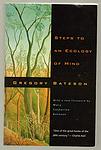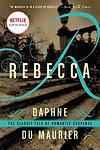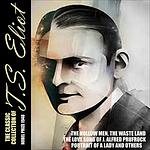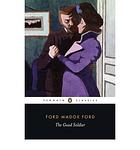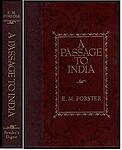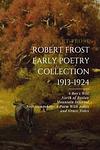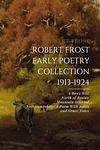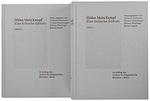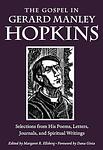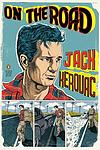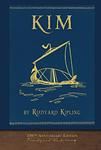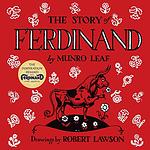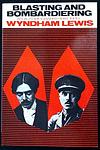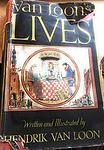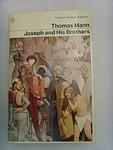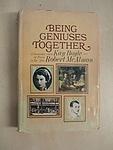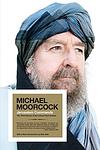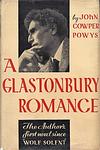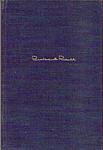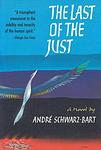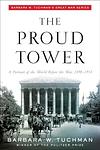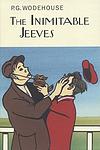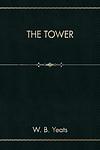Daily Telegraph's 100 Books of the Century, 1900-1999
This is one of the 284 lists we use to generate our main The Greatest Books list.
-
My Father And Myself by J. R. Ackerley
The book is a posthumously published memoir that explores the complex relationship between the author and his father. The narrative delves into the author's journey of self-discovery, particularly regarding his own sexuality, against the backdrop of his father's secretive life. It reveals the author's quest to understand his father after his death, unearthing surprising truths and a parallel hidden life of homosexual liaisons, which mirrors the author's own experiences. The memoir is a poignant reflection on identity, family secrets, and the search for honesty and connection.
-
Poems of W. H. Auden by W. H. Auden
This book is a collection of poems by a renowned 20th-century poet. The poems cover a wide range of themes, including love, politics, religion, and the human condition. The poet's unique style combines traditional forms with modernist free verse and his work is known for its technical achievement, emotional depth, and engagement with moral and political issues. The collection provides an overview of the poet's career, showcasing his development and evolution as a writer.
-
The Atrocity Exhibition by J. G. Ballard
This book is a collection of interconnected stories that explore the effects of media and technology on modern psychology and human behavior. The narrative centers around a psychiatrist who, after a mental breakdown, becomes fixated on the idea that there is a deeper, more abstract reality beneath the surface of everyday life. He obsessively analyzes cultural events, car crashes, and sexual encounters as he attempts to deconstruct the world into a series of conceptual, almost fetishized images. The work challenges the boundaries between sanity and madness, reality and simulation, in a fragmented, non-linear style that mirrors the disjointed nature of the protagonist's psyche and the chaotic society he is attempting to dissect.
-
Steps To An Ecology Of Mind by Gregory Bateson
The book in question is a seminal collection of essays and lectures that delve into the interconnectedness of biological, psychological, and sociological systems. The author, an anthropologist and cybernetic theorist, explores the concept of the mind as a fundamental element of the larger ecological system, challenging traditional boundaries between individual and environment. Through a series of interdisciplinary discussions, the work examines patterns of communication, the nature of learning and adaptation, and the importance of understanding the complex relationships that underpin the functioning of ecosystems, societies, and individuals. The author's innovative ideas encourage readers to reconceptualize the way they think about the world, emphasizing the necessity of a holistic approach to solving the myriad of problems facing humanity.
-
Waiting for Godot by Samuel Beckett
"Waiting for Godot" is a play that explores themes of existentialism, despair, and the human condition through the story of two characters, Vladimir and Estragon, who wait endlessly for a man named Godot, who never arrives. While they wait, they engage in a variety of discussions and encounter three other characters. The play is characterized by its minimalistic setting and lack of a traditional plot, leaving much to interpretation.
-
Humboldt's Gift by Saul Bellow
This novel explores the friendship between a successful writer and his mentor, a once-celebrated poet now living in poverty and mental instability. As the protagonist navigates his own existential crisis amidst a life of material success, he reflects on the ideals of his mentor and the nature of art and personal ambition. The narrative grapples with themes of materialism, the purpose of art, and the spiritual emptiness of modern life.
-
Flesh by Brigid Brophy
"Flesh" is a novel that delves into the complexities of human relationships and sexuality through the lens of a young woman's journey of self-discovery. The protagonist, a free-spirited and intelligent individual, navigates the intricacies of love, marriage, and extramarital affairs in a society bound by conventional expectations. With a sharp wit and a keen eye for the absurdities of social norms, the narrative explores themes of liberation, identity, and the pursuit of pleasure, all while challenging the reader to reconsider traditional notions of morality and the role of fleshly desires in the search for personal fulfillment.
-
The Master and Margarita by Mikhail Bulgakov
This novel is a complex narrative that weaves together three distinct yet intertwined stories. The first story is set in 1930s Moscow and follows the devil and his entourage as they wreak havoc on the city's literary elite. The second story is a historical narrative about Pontius Pilate and his role in the crucifixion of Jesus Christ. The third story is a love story between the titular Master, a writer who has been driven to madness by the criticism of his work, and his devoted lover, Margarita. The novel is a satirical critique of Soviet society, particularly the literary establishment, and its treatment of artists. It also explores themes of love, sacrifice, and the nature of good and evil.
-
Silent Spring by Rachel Carson
This influential environmental science book presents a detailed and passionate argument against the overuse of pesticides in the mid-20th century. The author meticulously describes the harmful effects of these chemicals on the environment, particularly on birds, hence the metaphor of a 'silent spring' without bird song. The book played a significant role in advancing the global environmental movement and led to a nationwide ban on DDT and other pesticides in the United States.
-
Poems Of C. P. Cavafy by C. P. Cavafy
The book is a collection of lyrical poetry that delves into themes of historical reflection, personal experience, and existential contemplation. The poet, known for his profound and often melancholic musings, explores the depths of human emotion and the passage of time, frequently drawing upon Hellenistic history and mythology to enrich his verse. His work is characterized by a sense of nostalgia and a deep appreciation for the fleeting moments of beauty and pleasure in life, as well as an acute awareness of the inevitable decay and loss that accompany them. The poems are celebrated for their technical mastery, rich language, and the ability to evoke vivid imagery and complex emotional landscapes.
-
The Worst Journey in the World by Apsley Cherry-Garrard
"The Worst Journey in the World" is a gripping account of the Terra Nova Expedition to the South Pole in 1910-1913. The book vividly describes the perilous journey undertaken by a team of explorers, their struggles with brutal weather conditions, and the tragic loss of their leader and four other members on their return from the Pole. The narrative is not only about physical survival in harsh conditions, but also about the psychological toll of such an expedition, making it a timeless testament to human endurance and spirit.
-
The Worm Forgives The Plough by John Stewart Collis
This book is a lyrical and meditative reflection on the author's experiences working on the land during World War II, part of a movement where intellectuals were recruited to aid in agricultural work to support the war effort. The narrative combines personal observations with philosophical musings on the natural world, offering a unique perspective on the rhythms of rural life and the profound connection between humans and the earth. The author's prose poetically captures the beauty and hardship of manual labor, the changing seasons, and the intricate ecosystems of the countryside, ultimately presenting a thoughtful exploration of the relationship between nature and mankind, and the humility and learning that come from working closely with the soil.
-
Man-Eaters of Kumaon by Jim Corbett
The book is a collection of true stories about the author's hunting experiences in India, specifically his encounters with man-eating tigers and leopards in the Kumaon region. The author, a renowned hunter, was often called upon to kill these man-eaters when they became a threat to local villages. The book provides thrilling accounts of his hunts, as well as his observations on the behavior of these animals and his respect for their power and cunning.
-
Travels in Arabia Deserta by Charles M. Doughty
This book is a detailed account of the author's journey through the Arabian Peninsula in the late 19th century, offering a comprehensive look at the culture, geography and history of the region. The author's vivid descriptions of landscapes, people, customs, and his own experiences make it a captivating read. Despite the challenges he faced, such as cultural differences and harsh living conditions, the author's appreciation for the unique beauty and richness of the Arabian culture and environment shines through.
-
Rebecca by Daphne du Maurier
A young woman marries a wealthy widower and moves into his large English country house. She quickly realizes that the memory of her husband's first wife, Rebecca, haunts every corner of the estate. The housekeeper's obsessive devotion to Rebecca and the mysterious circumstances of her death continue to overshadow the second wife's attempts to make a happy life with her husband. As secrets about Rebecca's life and death are revealed, the new wife must grapple with her own identity and place within the household.
-
The Waste Land by T. S. Eliot
"The Waste Land" is a long poem that presents a bleak and despairing view of the world following the devastation of World War I. The poem is divided into five parts and uses a wide range of literary and cultural references, as well as multiple narrators, to depict a world in ruins. It explores themes of disillusionment, despair, and the decline of civilization, and is often considered a seminal work of modernist literature.
-
The Sound and the Fury by William Faulkner
The novel is a complex exploration of the tragic Compson family from the American South. Told from four distinct perspectives, the story unfolds through stream of consciousness narratives, each revealing their own understanding of the family's decline. The characters grapple with post-Civil War societal changes, personal loss, and their own mental instability. The narrative is marked by themes of time, innocence, and the burdens of the past.
-
The Great Gatsby by F. Scott Fitzgerald
Set in the summer of 1922, the novel follows the life of a young and mysterious millionaire, his extravagant lifestyle in Long Island, and his obsessive love for a beautiful former debutante. As the story unfolds, the millionaire's dark secrets and the corrupt reality of the American dream during the Jazz Age are revealed. The narrative is a critique of the hedonistic excess and moral decay of the era, ultimately leading to tragic consequences.
-
The Good Soldier by Ford Madox Ford
"The Good Soldier" is a tragic tale of two seemingly perfect couples: an American couple and an English couple, who meet at a German spa and share a nine-year friendship. However, underneath the surface, their relationships are far from ideal, filled with infidelity, lies, and deceit. The story is narrated by the American husband, who is the last to realize the intricate web of affairs and betrayals amongst the group. The novel explores themes of love, passion, and the destruction that can result from suppressed emotions and societal pressures.
-
A Passage to India by E. M. Forster
The novel takes place in British-ruled India, where the cultural divide between the British and the Indians is explored. The story focuses on the experiences of an Indian Muslim, Dr. Aziz, and his interactions with an English woman, Miss Quested, and her elderly friend, Mrs. Moore. After an expedition to the Marabar Caves, Miss Quested accuses Dr. Aziz of assault, leading to a trial that deepens the racial tensions and prejudices between the colonizers and the colonized. The novel is a critique of British imperialism and a study of the cultural and racial misunderstandings and ill-will between the British and the Indian people.
-
Mountain Interval by Robert Frost
"Mountain Interval" is a collection of poetry that delves into the human experience through the lens of nature and rural life. The poems explore themes of choice, self-reflection, and the passage of time, often with a contemplative and sometimes melancholic tone. The poet's use of simple yet evocative language and imagery draws readers into a world where the natural landscape serves as a backdrop for introspection and the contemplation of life's complexities. The work includes some of the poet's most famous pieces, which reflect on the significance of the paths we take and the decisions we make.
-
North Of Boston by Robert Frost
"North of Boston" is a collection of poems that delve into the rural life and landscape of New England, capturing the beauty, hardships, and complex social relationships of early 20th-century America. Through its verses, the book explores themes of nature, human connection, isolation, and the passage of time, often through the lens of the region's stark seasons and the stoic, resilient character of its inhabitants. The poems range from narrative to dramatic, with a focus on everyday events and the subtle dramas unfolding in the lives of ordinary people, all rendered with the author's keen observational skills and a deep appreciation for the nuances of spoken language.
-
Love in the Time of Cholera by Gabriel Garcia Marquez
This novel follows the story of Florentino Ariza and Fermina Daza, who fall passionately in love in their youth. However, Fermina eventually marries a wealthy doctor, leaving Florentino heartbroken. Despite this, Florentino remains devoted to Fermina for over fifty years, patiently waiting for her husband's death to have another chance at her love. The story is set against the backdrop of a cholera epidemic, serving as a metaphor for the transformative power of love and the destructive power of obsession.
-
One Hundred Years of Solitude by Gabriel Garcia Marquez
This novel is a multi-generational saga that focuses on the Buendía family, who founded the fictional town of Macondo. It explores themes of love, loss, family, and the cyclical nature of history. The story is filled with magical realism, blending the supernatural with the ordinary, as it chronicles the family's experiences, including civil war, marriages, births, and deaths. The book is renowned for its narrative style and its exploration of solitude, fate, and the inevitability of repetition in history.
-
The Wind in the Willows by Kenneth Grahame
"The Wind in the Willows" is a charming tale about the adventures of four anthropomorphic animal friends - Mole, Rat, Badger, and the rebellious and extravagant Toad. The story is set in the idyllic English countryside and explores themes of friendship, exploration, and respect for nature. The narrative is marked by Toad's reckless behavior, his obsession with motor cars, and his eventual redemption. The other characters, with their contrasting personalities, bring balance and depth to the story.
-
Pack My Bag by Henry Green
"Pack My Bag" is a reflective autobiography written on the eve of World War II, offering a poignant look into the author's life and mindset during a time of impending crisis. The narrative weaves personal memories with broader social observations, exploring the author's privileged upbringing, education, and early adulthood. It delves into the complexities of class and the human condition, with a particular focus on the author's experiences working in his family's factory and the insights gained from interacting with workers from different social strata. The book serves as both a personal testament and a historical document, capturing the anxieties of a generation on the brink of global conflict.
-
Life and Fate by Vasily Grossman
"Life and Fate" is a sweeping epic that explores the human condition during the Siege of Stalingrad in World War II. The novel delves into the lives of a wide range of characters, from soldiers and scientists to children and victims of the Holocaust, providing a stark and unflinching portrayal of the horrors of war, the brutality of totalitarianism, and the resilience of the human spirit. At the same time, it also examines themes of love, loss, and the struggle for freedom and dignity in the face of overwhelming adversity.
-
Poems Of Thomas Hardy by Thomas Hardy
The collection presents a poignant exploration of the human condition, nature, and the passage of time through the lens of one of the Victorian era's most profound literary figures. The poems delve into themes of love, loss, and the inexorable march of change, often set against the backdrop of the English countryside. The poet's mastery of language and form is evident as he weaves together the rustic with the philosophical, offering readers a reflective and deeply emotional journey through his verse. The work stands as a testament to the enduring power of poetry to capture the complexities of life and the depths of human emotion.
-
In Our Time by Ernest Hemingway
"In Our Time" is a collection of short stories that explores the theme of lost generation, focusing on the disillusionment and angst experienced by people post World War I. The stories are interconnected, often featuring the protagonist Nick Adams, and depict various stages of his life. The book is renowned for its unique narrative style, which uses a combination of minimalist prose and a stream-of-consciousness technique, reflecting the fragmented nature of the post-war world.
-
Cavaliers And Roundheads by Christopher Hibbert
"Cavaliers and Roundheads" is a historical account that delves into the turbulent period of the English Civil War in the 17th century, offering a detailed narrative of the conflict between the Royalists (Cavaliers) and the Parliamentarians (Roundheads). The book provides a comprehensive analysis of the political, religious, and social factors that fueled the war, while also painting vivid portraits of the key figures involved, including King Charles I and Oliver Cromwell. Through meticulous research and engaging storytelling, the work captures the complexities of the era, the brutal battles, and the ultimate transformation of the English monarchy and parliamentary system.
-
Mein Kampf by Adolf Hitler
This book is a two-volume work written by a prominent dictator during his imprisonment in 1924. It outlines his political ideology and future plans for Germany, combining elements of autobiography with an exposition of his views on race, nationality, and governance. The author's main thesis is that the German-speaking 'Aryan' race is superior to all others, and that it is the duty of the state to preserve the purity of this race through policies of racial segregation, expansionism, and extermination. The book also contains detailed discussions on the author's hatred towards Jews, Marxism, and the parliamentary system.
-
The Poems Of Gerard Manley Hopkins by Gerald Manley Hopkins
This book is a collection of lyrical and innovative poetry by a Victorian-era English poet known for his radical departure from traditional verse forms and his use of what he called "sprung rhythm." The poems explore themes of nature, religion, and melancholy, often with intense emotion and vivid imagery. The poet's work, not fully appreciated during his lifetime, has since been recognized for its daring metrical and linguistic experiments, its rich sound play, and its deep spiritual fervor, influencing modern poetry and establishing him as a significant figure in English literature.
-
Last Poems by A. E. Housman
"Last Poems" is a collection of lyrical verse that delves into themes of mortality, the passage of time, and the bittersweet nature of human life. The poems, characterized by their classical simplicity and emotional depth, reflect the author's preoccupation with loss and the inevitable decline that comes with age. The work resonates with a sense of melancholy and a poignant longing for the irretrievable past, while also occasionally revealing a wry humor amidst its contemplation of life's transience. The poet's masterful use of language and evocative imagery invites readers to reflect on their own experiences of love, nature, and the inexorable march towards death.
-
Brave New World by Aldous Huxley
Set in a dystopian future, the novel explores a society where human beings are genetically bred and pharmaceutically conditioned to serve in a ruling order. The society is divided into five castes, each with its specific roles. The narrative follows a savage who rejects the norms of this new world order and struggles to navigate the clash between the values of his upbringing and the reality of this technologically advanced, emotionless society. His resistance prompts a deep examination of the nature of freedom, individuality, and happiness.
-
The Golden Bowl by Henry James
The Golden Bowl is a complex narrative that revolves around an American woman and her daughter who marry a father and son. The daughter's husband previously had a romantic relationship with the mother's husband, leading to a tense and intricate web of relationships. The novel explores themes of marriage, adultery, and familial bonds, and is renowned for its detailed characterization and intricate plot structure.
-
Ulysses by James Joyce
Set in Dublin, the novel follows a day in the life of Leopold Bloom, an advertising salesman, as he navigates the city. The narrative, heavily influenced by Homer's Odyssey, explores themes of identity, heroism, and the complexities of everyday life. It is renowned for its stream-of-consciousness style and complex structure, making it a challenging but rewarding read.
-
The Perfect Storm by Sebastian Junger
This non-fiction book narrates the story of the Andrea Gail, a commercial fishing vessel that was lost at sea during the "Perfect Storm" of 1991. The author combines meteorological science, history, and personal accounts to paint a vivid picture of the harrowing ordeal faced by these six fishermen. The book also explores the dangerous profession of deep-sea fishing and the tight-knit communities that are affected by such tragedies.
-
The Trial by Franz Kafka
The book revolves around a bank clerk who wakes one morning to find himself under arrest for an unspecified crime. Despite not being detained, he is subjected to the psychological torment of a bizarre and nightmarish judicial process. The story is a critique of bureaucracy, exploring themes of guilt, alienation and the inefficiency of the justice system.
-
On the Road by Jack Kerouac
This novel follows the story of a young man and his friend as they embark on a series of cross-country road trips across America during the late 1940s and early 1950s. The protagonist, driven by a desire for freedom and a quest for identity, encounters a series of eccentric characters and experiences the highs and lows of the Beat Generation. The narrative is a testament to the restlessness of youth and the allure of adventure, underscored by themes of jazz, poetry, and drug use.
-
The General Theory of Employment, Interest and Money by John Maynard Keynes
This influential economic treatise presents a groundbreaking theory that challenges classical economics, asserting that aggregate demand, driven by public and private sector spending, is the primary factor influencing economic activity and employment levels. The book also introduces the concept of fiscal and monetary policies as tools to manage economic downturns, thus shaping the foundation of modern macroeconomics. It further critiques the idea that market economies would automatically provide full employment and argues for active government intervention to prevent economic recessions and depressions.
-
Kim by Rudyard Kipling
"Kim" is a thrilling adventure set in India during the height of the British empire. The story follows the life of a young Irish orphan, Kimball O'Hara, who grows up on the streets of Lahore. Kim's life takes a dramatic turn when he becomes involved in the 'Great Game', the political conflict between Russia and Britain in Central Asia. Guided by an old Tibetan Lama on a spiritual quest, Kim is recruited by the British secret service and sent on a dangerous mission across the Himalayas. The novel explores themes of identity, imperialism, and East vs. West.
-
Sons and Lovers by D. H. Lawrence
"Sons and Lovers" is a semi-autobiographical novel that explores the complex relationships between a miner's wife, her husband, and their two sons. The story focuses on the intense emotional and psychological bonds between the mother and her sons, as well as the struggles they face in their romantic relationships due to their deep attachment to their mother. The novel delves into themes of class, love, sexuality, and the oedipal complex, presenting a vivid picture of working-class life in early 20th century England.
-
Independent People by Halldor Laxness
"Independent People" is a novel set in rural Iceland, following the life of a stubborn sheep farmer who values his independence above all else. Despite facing numerous hardships, including poverty, harsh weather, and family strife, he refuses to accept help or compromise his self-reliance. The book explores themes of pride, the struggle for survival, and the human spirit's resilience in the face of adversity.
-
Story of Ferdinand by Munro Leaf
The book tells the story of Ferdinand, a gentle, peace-loving bull living in Spain who would rather smell flowers than participate in bullfights. Despite his mother's worries, Ferdinand grows up to be a strong bull still with a kind heart who loves smelling flowers. However, when five men come to choose the fiercest bull for a bullfight and Ferdinand is mistakenly selected, he must find a way to stay true to himself even in the face of danger and expectations.
-
If This Is a Man by Primo Levi
This book is a deeply moving and insightful memoir of a survivor of Auschwitz, a Nazi concentration camp during World War II. The author, an Italian Jew, provides a detailed account of his life in the camp, the brutal conditions, the dehumanization, and the struggle for survival. The narrative is a profound exploration of the human spirit, resilience, and the will to live, despite unimaginable horror and suffering. It also raises profound questions about humanity, morality, and the capacity for evil.
-
Babbitt by Sinclair Lewis
"Babbitt" is a satirical novel that explores the life of a prosperous, middle-aged businessman living in a Midwestern city during the 1920s. Despite his apparent success and conformity to societal norms, the protagonist feels a deep dissatisfaction with his life and the monotony of his daily routines. This leads him to rebel against the conservative values of his community, resulting in personal and social upheaval. The book critically examines the American middle class and the pressures of conformism, materialism, and status anxiety.
-
Blasting And Bombardiering by Wyndham Lewis
This book is an autobiographical account that blends sardonic wit with vivid descriptions of the author's experiences during the first half of the 20th century, particularly focusing on his time serving as an artillery officer during World War I. It offers a trenchant critique of modern warfare and the cultural shifts of the era, as well as an inside look at the author's involvement with the avant-garde art and literary movements of the time. The narrative is characterized by its acerbic humor, intellectual rigor, and the author's distinctive perspective on the chaos and transformation that defined the early decades of the twentieth century.
-
Van Loon's Lives by Hendrik Willem van Loon
The book in question is a unique blend of biography, autobiography, and fantasy, where the author imagines inviting historical figures from different eras to dinner at his home. Through a series of lively conversations and interactions, the author and his guests explore the lives and thoughts of these famous individuals, ranging from philosophers and scientists to artists and rulers. The narrative provides a creative and insightful look at history, as well as the author's own musings on life, culture, and human progress, all while blurring the lines between past and present in an engaging and whimsical manner.
-
The Towers Of Trebizond by Rose Macauley
"The Towers of Trebizond" is a humorous and thought-provoking novel that follows the journey of a young woman and her eccentric aunt as they embark on a trip to Turkey. Through their adventures and encounters with various characters, the book explores themes of religion, love, and the clash between tradition and modernity. With its witty narration and insightful observations, the novel offers a captivating exploration of faith and identity.
-
Danube by Claudio Magris
This literary work is a rich tapestry that combines travelogue, history, and cultural analysis, following the journey of the river Danube from its sources in the heart of Europe to its delta at the Black Sea. As the narrative meanders through various countries, it delves into the complex history and diversity of the regions along the riverbanks, reflecting on the interplay of different cultures, languages, and peoples. The book is a contemplative exploration of the European spirit, examining the river as both a physical and metaphorical conduit through which ideas and influences have flowed, shaping the continent's past and present.
-
The Last Lion by William Manchester
"The Last Lion" is a comprehensive biography of Winston Churchill, providing an in-depth look at his life, from his birth in 1874 to his death in 1965. The book covers Churchill's early years, his military service, his time as a journalist, and his political career, including his role as British Prime Minister during World War II. It also delves into his personal life, relationships, and struggles with depression. The book presents a nuanced portrayal of Churchill, highlighting his strengths, flaws, victories, and defeats.
-
Joseph and His Brothers by Thomas Mann
This novel is a re-imagining of the biblical story of Joseph, known for his coat of many colors. The narrative delves deeply into the psychological aspects of each character, exploring their motivations, flaws, and virtues. The story covers Joseph's life from his early years in Canaan, through his betrayal by his brothers who sell him into slavery in Egypt, his rise to power in Pharaoh's court, and his eventual reconciliation with his brothers. The novel is a rich tapestry of dreams, myths, and rituals, blending biblical tradition with the author's own philosophical insights.
-
Being Geniuses Together by Robert McAlmon
"Being Geniuses Together" is a memoir that offers an intimate glimpse into the lives and social milieu of the expatriate writers and artists living in Paris during the 1920s. The narrative, rich with personal anecdotes and observations, paints a vivid portrait of the bohemian lifestyle and creative ferment of the Lost Generation. The book delves into the friendships, rivalries, and collaborations among some of the era's most renowned literary figures, providing a candid and often critical perspective on the talents and personalities that defined this iconic and transformative period in literary history.
-
Jerusalem Commands by Michael Moorcock
In "Jerusalem Commands," readers are transported through a fantastical and surreal narrative that follows the adventures of Colonel Pyat, an unreliable and often delusional protagonist. Set against the backdrop of the early 20th century, the novel weaves through the chaos of a world between wars, touching upon themes of imperialism, addiction, and the quest for identity. Pyat's journey is marked by a series of escapades and misadventures that take him from Europe to Africa, exposing the dark underbelly of colonialism and the human psyche. The book is the third in a series, characterized by its rich historical tapestry and a protagonist who is as charismatic as he is morally ambiguous, leaving readers to question the very nature of truth and history.
-
Lolita by Vladimir Nabokov
The novel tells the story of Humbert Humbert, a man with a disturbing obsession for young girls, or "nymphets" as he calls them. His obsession leads him to engage in a manipulative and destructive relationship with his 12-year-old stepdaughter, Lolita. The narrative is a controversial exploration of manipulation, obsession, and unreliable narration, as Humbert attempts to justify his actions and feelings throughout the story.
-
Pale Fire by Vladimir Nabokov
The novel is a unique blend of fiction, commentary, and poetry, presented as a 999-line poem written by a fictional poet, followed by an extensive commentary and foreword by his neighbor and academic colleague. The novel blurs the line between reality and fiction, as the commentator's notes reveal an alternative narrative, one of exile, intrigue, and murder. The book is a playful exploration of authorship, deception, and the nature of art.
-
Speak, Memory by Vladimir Nabokov
"Speak, Memory" is an autobiographical memoir that explores the author's life from his birth in 1899 to his emigration to the United States in 1940. The narrative details his privileged childhood in Russia, his experiences during the Russian Revolution, his time in Europe as an émigré, and his career as a writer and scholar. The book is noted for its intricate descriptions, its exploration of the nature of memory, and its intricate linguistic play.
-
The Third Policeman by Flann O'Brien
"The Third Policeman" is a darkly comedic and surreal novel about a nameless narrator who, after committing a murder to raise funds for his scholarly obsession with a bizarre pseudo-scientific theory, finds himself wandering in an eerie, nightmarish landscape. He encounters strange characters, including a pair of eccentric policemen who are obsessed with bicycles, and becomes embroiled in a series of increasingly absurd and ludicrous situations. The novel explores themes of existence, reality, and the nature of hell, with a twist ending that forces the reader to question everything they've read.
-
The Endless Adventure by F. S. Oliver
"The Endless Adventure" is a historical narrative that delves into the evolution of political and social institutions in Western civilization. Through a series of reflective essays, the work offers a critical examination of the forces that have shaped governance and societal norms over the centuries. The author presents a philosophical and analytical exploration of the concepts of liberty, authority, and the state, pondering the cyclical nature of progress and the perpetual struggle between individual freedom and collective responsibility. This contemplative book seeks to understand the complexities of human development and the relentless pursuit of advancement in the context of an ever-changing world.
-
Nineteen Eighty Four by George Orwell
Set in a dystopian future, the novel presents a society under the total control of a totalitarian regime, led by the omnipresent Big Brother. The protagonist, a low-ranking member of 'the Party', begins to question the regime and falls in love with a woman, an act of rebellion in a world where independent thought, dissent, and love are prohibited. The novel explores themes of surveillance, censorship, and the manipulation of truth.
-
Animal Farm by George Orwell
"Animal Farm" is a satirical fable set on a farm where the animals revolt, overthrow their human farmer, and take over the running of the farm for themselves. The story is an allegory of the Russian Revolution and the rise of Stalin, and the tale is told by the animals that inhabit the farm, primarily pigs who become the ruling class. Despite their initial attempts at creating an equal society, corruption and power ultimately lead to a regime as oppressive as the one they overthrew.
-
Homage to Catalonia by George Orwell
The book is a personal account of the author's experiences during the Spanish Civil War, specifically his time with the POUM (Partit Obrer d'Unificació Marxista) militia in Catalonia. He provides an in-depth look at the social revolution that took place, the daily life of a soldier, the political infighting and betrayals among the Republican factions, and his eventual disillusionment with the cause he initially supported. The book is both a war memoir and a detailed analysis of a complex political situation.
-
The Unquiet Grave by Cyril Connolly
"The Unquiet Grave" is a reflective, deeply personal work that combines elements of a journal, essay, and a collection of aphorisms. Written during a period of the author's intense grief and existential contemplation following the end of a significant relationship, the book is a mosaic of thoughts on life, love, literature, and society. It is rich with literary references and musings on the human condition, offering a poignant exploration of melancholy and the quest for meaning in the face of mortality. The author's erudition and wit provide a compelling, albeit somber, meditation on the nature of happiness and the transience of human passions and achievements.
-
Good Company by Frances Partridge
"Good Company" is a reflective memoir that offers an intimate glimpse into the life of a central figure within the Bloomsbury Group, an influential circle of intellectuals and artists in early 20th-century England. The book weaves personal anecdotes, diary entries, and letters to paint a vivid portrait of the author's friendships, loves, and the cultural milieu in which she lived. It provides an honest and often poignant exploration of the author's relationships with key literary and artistic figures of the time, their shared experiences during the tumultuous years of the World Wars, and the enduring impact of these relationships on her life and work. The memoir stands as a testament to the power of intellectual companionship and the profound influence of community on individual creativity.
-
Doctor Zhivago by Boris Pasternak
Set against the tumultuous backdrop of the Russian Revolution, the book follows the life of a physician and poet, Yuri Zhivago, as he navigates the political and social upheaval of the early 20th century. Torn between his love for two women, his wife Tonya and his passionate mistress Lara, Zhivago's personal struggles mirror the larger societal changes occurring around him. The novel explores themes of love, war, and the human spirit, offering a poignant and complex portrait of life during a time of revolutionary change.
-
A Dance to the Music of Time by Anthony Powell
"A Dance to the Music of Time" is a twelve-volume cycle that follows the life of the protagonist, a man from the upper-middle class in England, from his school days to his old age. The series provides a detailed and satirical depiction of British society and its changes over several decades, from the 1920s to the 1970s. The narrative is filled with a rich cast of characters from different social classes and backgrounds, whose lives intersect in various ways over time.
-
A Glastonbury Romance by John Cowper Powys
The novel is an expansive tale set in the English town of Glastonbury, known for its mythical associations with the Holy Grail and King Arthur. It weaves together the lives of a vast array of characters, from industrialists to mystics, as they search for meaning and transcendence in the post-World War I era. The narrative delves into themes of spirituality, nature, and industrialization, contrasting the mystical allure of ancient legends with the stark realities of modern life. At its heart, the story is a quest for deeper understanding and connection, set against the backdrop of the town's legendary landscape and the annual pageant that reenacts its storied past.
-
In Search of Lost Time by Marcel Proust
This renowned novel is a sweeping exploration of memory, love, art, and the passage of time, told through the narrator's recollections of his childhood and experiences into adulthood in the late 19th and early 20th century aristocratic France. The narrative is notable for its lengthy and intricate involuntary memory episodes, the most famous being the "madeleine episode". It explores the themes of time, space and memory, but also raises questions about the nature of art and literature, and the complex relationships between love, sexuality, and possession.
-
The Getting Of Wisdom by Henry Handel Richardson
The novel is a coming-of-age story set in late 19th-century Australia, following the experiences of Laura Rambotham, a spirited and intelligent country girl sent to a prestigious Melbourne boarding school. Struggling with the rigid social hierarchies and the expectations placed upon her, Laura faces numerous challenges and humiliations, but she remains determined to find her place in the world. Through her journey, the book explores themes of education, social class, friendship, and the quest for personal identity, ultimately illustrating the complexities and trials of growing up and the bittersweet acquisition of wisdom.
-
Midnight's Children by Salman Rushdie
The novel tells the story of Saleem Sinai, who was born at the exact moment when India gained its independence. As a result, he shares a mystical connection with other children born at the same time, all of whom possess unique, magical abilities. As Saleem grows up, his life mirrors the political and cultural changes happening in his country, from the partition of India and Pakistan, to the Bangladesh War of Independence. The story is a blend of historical fiction and magical realism, exploring themes of identity, fate, and the power of storytelling.
-
A History of Western Philosophy by Bertrand Russell
This book provides a comprehensive overview of Western philosophy from the pre-Socratic philosophers through the Middle Ages and the Renaissance, up to the early 20th century. It examines the ideas and contributions of major philosophers, including Plato, Aristotle, Descartes, Spinoza, Leibniz, Locke, Hume, Kant, and others, while also exploring the cultural and historical context in which their thoughts developed. The work is known for its accessible prose and critical perspective, as it not only presents philosophical concepts but also offers the author's analysis and interpretation of these ideas, highlighting their relevance to the broader sweep of human thought and society.
-
The Problems of Philosophy by Bertrand Russell
This book is an introduction to the central issues of philosophy, discussing topics such as reality, existence, knowledge, freedom, and ethics. It seeks to promote critical thinking and skepticism, encouraging readers to question their own beliefs and the world around them. The author uses clear and accessible language to explain complex philosophical concepts, making it an ideal starting point for those new to philosophy.
-
The Catcher in the Rye by J. D. Salinger
The novel follows the story of a teenager named Holden Caulfield, who has just been expelled from his prep school. The narrative unfolds over the course of three days, during which Holden experiences various forms of alienation and his mental state continues to unravel. He criticizes the adult world as "phony" and struggles with his own transition into adulthood. The book is a profound exploration of teenage rebellion, alienation, and the loss of innocence.
-
The Last Of The Just by André Schwarz-Bart
The book is a poignant and harrowing narrative that follows the tragic history of the Levy family over eight centuries, focusing on the lineage of the "Just Men" - thirty-six pure souls in each generation said to bear the sufferings of the world. The story culminates with the life of Ernie Levy, who, despite the encroaching horrors of the Holocaust, maintains an unwavering faith in human goodness. His journey through the ghettos and concentration camps of World War II Europe is a testament to the endurance of the human spirit in the face of unspeakable evil, as he upholds his family's legacy of compassion until his last breath.
-
1066 And All That by W.C. Sellar
The book is a satirical take on the history of England, presenting a whimsical recounting of events from Roman times through to the end of World War I, focusing particularly on the year 1066, known for the Battle of Hastings. It parodies the way history is taught, with an emphasis on memorable events, rulers, and dates, often getting facts humorously wrong or presenting them with a comical twist. The work is characterized by its irreverent tone, wordplay, and deliberate inaccuracies, lampooning both historical figures and the supposed objectivity of historians, ultimately suggesting that what is remembered from history is often a muddle of 'what you can remember' and 'what you cannot help remembering'.
-
A Suitable Boy by Vikram Seth
Set in 1950s India, this epic novel follows the story of four families over a period of 18 months, focusing primarily on the young woman Lata and her mother's quest to find her a suitable husband. The narrative explores the political, social, and personal upheavals in a newly independent India, struggling with its own identity amidst the backdrop of a society grappling with religious tensions, land reforms, and the shaping of a modern democratic state. Lata's journey is an exploration of love, ambition, and the weight of familial duty.
-
And Quiet Flows The Don by Mikhail Sholokhov
"And Quiet Flows The Don" is a sweeping epic set in the early 20th century, following the lives of several characters in the Don River region of Russia. Through the lens of the Melekhov family, the novel explores the impact of war, revolution, and societal changes on both individuals and the community as a whole. With vivid descriptions and rich character development, the book delves into themes of love, loyalty, and the struggle for survival amidst the tumultuous backdrop of historical events.
-
The Gulag Archipelago by Aleksandr Solzhenitsyn
"The Gulag Archipelago" is a comprehensive and stark account of the Soviet Union's forced labor camp system. The narrative, based on the author's own experiences as a prisoner and on extensive research, documents the history, operation, and life inside the Gulag system. It also provides a critical examination of the regime's legal system, police operations, and political leadership. The book is an intense indictment of the Soviet Union's totalitarian regime, revealing its brutality, inhumanity, and vast scale of its prison camp network.
-
Last And First Men by Olaf Stapledon
"Last And First Men" is a speculative science fiction novel that spans billions of years, exploring the future evolution of humanity through the eyes of multiple civilizations. The book delves into the rise and fall of different human species, their struggles, achievements, and ultimate demise. It offers a sweeping vision of the future, highlighting the potential for both greatness and destruction in the path of human evolution.
-
Collected Poems Of Edward Thomas by Edward Thomas
The book is an anthology of poetry from a notable early 20th-century poet whose work delves into themes of nature, the English countryside, and the human experience, often reflecting on the transient beauty of the world and the melancholy of war. His verse is characterized by a deep appreciation for the landscape, a sense of nostalgia, and a profound contemplation of life and death, influenced by his own experiences and the turmoil of the era in which he lived. The collection brings together a range of his poems, showcasing his talent for rich imagery, emotional depth, and a quiet, reflective tone that has cemented his place as a significant figure in English poetry.
-
The Leopard by Giuseppe Tomasi di Lampedusa
"The Leopard" is a historical novel set in 19th-century Sicily, during the time of the Italian unification or Risorgimento. It centers on an aging, aristocratic protagonist who is coming to terms with the decline of his class and the rise of a new social order. The narrative weaves together personal drama with the larger political and social upheaval of the time, providing a rich, nuanced portrait of a society in transition. Despite his resistance to change, the protagonist ultimately recognizes its inevitability and the futility of his efforts to preserve the old ways.
-
William Trevor: The Collected Stories by William Trevor
This collection brings together numerous short stories from a renowned author, demonstrating his masterful storytelling ability. The stories span a variety of themes and settings, often focusing on the complexities of human relationships and the subtle nuances of everyday life. The author's keen eye for detail and ability to capture the human condition in his works have earned him a place among the greatest short story writers.
-
The Proud Tower by Barbara Tuchman
This historical work delves into the tumultuous period preceding World War I, capturing the social, political, and cultural landscape of the world from the 1890s through the early 20th century. The narrative weaves through various countries and influential figures, examining the contrasts between the wealth of the elite and the struggles of the working class, the rise of anarchism, and the complexities of pre-war diplomacy. It paints a vivid picture of an era marked by both grandeur and the simmering tensions that would eventually lead to one of the most devastating conflicts in human history.
-
Pigeon Feathers And Other Stories by John Updike
This collection of short stories delves into the intricacies of American life, examining the personal struggles and inner lives of ordinary individuals as they confront the complexities of existence. Through a series of vividly rendered tales, the author explores themes of faith, mortality, and the search for meaning in the mundane. The stories are marked by their acute psychological insight and the author's distinctive prose, which captures the nuances of his characters' experiences, whether they are a young boy grappling with religious doubt or adults navigating the subtleties of love, loss, and identity.
-
The Breakfast of Champions by Kurt Vonnegut
The novel is a satirical depiction of American society, with a particular focus on its materialism, business culture, and obsession with success. It tells the story of two men: Dwayne Hoover, a wealthy businessman who is gradually losing his sanity, and Kilgore Trout, a largely unsuccessful science fiction writer. Their lives intersect in a series of absurd, tragicomic events, leading to a climax that forces the reader to question the nature of free will and the meaning of life. The narrative is punctuated by the author's own illustrations and frequent digressions on a wide range of topics.
-
Mr. Fortune's Maggot by Sylvia Townsend Warner
The book centers around a British missionary who travels to a remote South Sea island with the intent to convert the native population to Christianity. However, his efforts are met with indifference by the islanders, who are content with their own beliefs and way of life. As time passes, the missionary forms a close bond with a young boy from the island, which leads him to question the very foundations of his faith and purpose. The story explores themes of colonialism, spirituality, and personal transformation, ultimately revealing the complexities of cultural interactions and the profound impact of human connections.
-
The Loved One by Evelyn Waugh
The book is a satirical examination of the American funeral industry, set in Los Angeles. It follows the experiences of a young British poet working at a pet cemetery who becomes entangled in the superficial and bizarre practices at a funeral parlor for humans, as well as a love triangle with a cosmetician and her colleague. The narrative delves into themes of cultural clash, the commercialization of death, and the vacuity of the American way of life, all delivered with a sharp, darkly comedic edge.
-
The History of Mr. Polly by H. G. Wells
"The History of Mr. Polly" is a comedic novel that tells the story of Alfred Polly, a man dissatisfied with his life and marriage. After faking his death in a fire, he leaves his wife and shop behind to start a new life. He eventually finds peace and contentment working as an assistant to a man who runs a country inn. The book explores themes of self-discovery, the struggle against societal expectations, and the pursuit of happiness.
-
Down With Skool! by Geoffrey Willans
This humorous book presents a satirical take on the British educational system of the 1950s through the eyes of Nigel Molesworth, a fictional student at St. Custard's, a boys' preparatory school. Written in deliberately misspelled English to mimic the protagonist's lack of enthusiasm for academic rigor, the narrative is a series of anecdotes and reflections on school life, including the eccentricities of teachers, the hierarchies among students, and the various ways pupils devise to cope with or circumvent the demands of their scholastic environment. The book playfully critiques the outdated traditions and pedagogical methods of the time, offering a comedic and irreverent perspective on the trials and tribulations of schoolboy life.
-
A Streetcar Named Desire by Tennessee Williams
"A Streetcar Named Desire" is a classic American play that explores themes of desire, desperation, and decay through the story of Blanche DuBois, a former schoolteacher from a once-wealthy Southern family who moves in with her sister Stella and her brutish husband Stanley in their cramped apartment in New Orleans. As Blanche grapples with her own past traumas and the harsh realities of her present situation, her mental state deteriorates, leading to a tragic end. The play presents a stark contrast between the genteel Old South and the gritty, working-class reality of post-WWII America.
-
The Struggle for Europe by Chester Wilmot
"The Struggle for Europe" is a comprehensive historical account of World War II from the perspective of the Western Allies. It meticulously details the military strategies, political maneuverings, and individual battles that led to the defeat of Nazi Germany. The book also explores the aftermath of the war and the power dynamics that shaped the modern map of Europe. It provides an in-depth analysis of the decisions made by key figures during the war, and how these decisions impacted the outcome of the war and the post-war reconstruction of Europe.
-
Tractatus Logico-Philosophicus by Ludwig Wittgenstein
"Tractatus Logico-Philosophicus" is a seminal work in analytic philosophy that presents a comprehensive picture of reality and our knowledge of it. The book outlines a logical structure for all scientific discourse, arguing that language and its logical structure are the primary tools for understanding and representing the world. It proposes that all philosophical problems arise from misunderstandings of the logic of language, and that all meaningful propositions are pictures of states of affairs in the world. The book concludes with the famous line "Whereof one cannot speak, thereof one must be silent," suggesting that things that cannot be spoken about logically should not be spoken about at all.
-
The Inimitable Jeeves by P. G. Wodehouse
This book is a collection of humorous short stories set in 1920s London, featuring the iconic characters of a wealthy, hapless young man and his intelligent, resourceful butler. The narrative revolves around the young man's various misadventures, often involving his eccentric friends and relatives, and the butler's ingenious solutions to save the day. The stories are characterized by their witty dialogue, slapstick humor, and satirical commentary on the British upper class.
-
A Writer's Diary by Virginia Woolf
This book is a collection of entries extracted from the personal diaries of a prominent 20th-century British novelist, providing readers with a unique glimpse into her artistic process, literary ambitions, and the daily preoccupations that influenced her work. Spanning over two decades, the diary entries offer an intimate portrait of her struggles with mental health, her opinions on contemporary literature, and her insights into the craft of writing. The book serves as a valuable resource for understanding the mind of a literary genius and the internal and external factors that shaped some of the most innovative fiction of the modernist era.
-
The Tower by William Butler Yeats
"The Tower" is a collection of poems that delves into the themes of aging, identity, and the creative process, reflecting the poet's introspection and philosophical musings as he grapples with the passage of time. The work is characterized by rich symbolism and imagery, drawing upon the poet's personal experiences, Irish mythology, and the political landscape of the time. Central to the collection is the metaphor of the tower, representing both a place of isolation and a vantage point from which to view and contemplate the world. The poems within explore the tension between the material and spiritual, the temporal and the eternal, as the poet seeks to reconcile the transitory nature of life with the pursuit of transcendent artistic expression.
Daily Telegraph, 95 Books
The Daily Telegraph asked 100 contributors/authors/experts to choose 1 book as their favorite or most notable book of the last 100 years (1900-1999). This list was originally published in the newspaper
Added about 2 months ago.
This list has a weight of 80%. To learn more about what this means please visit the Rankings page.
Here is a list of what is decreasing the importance of this list:
- Voters: are mostly from a single country/location
- List: criteria is not just "best/favorite"
- List: only covers 100 years
If you think this is incorrect please e-mail us at [email protected].



